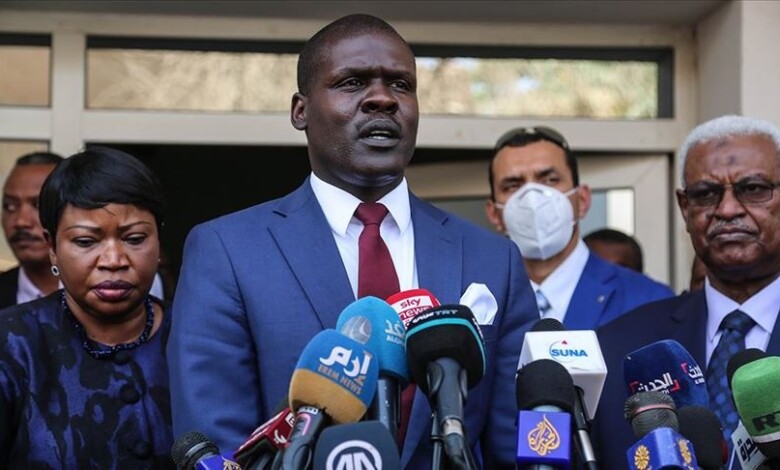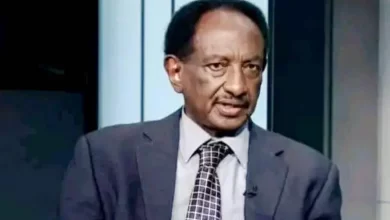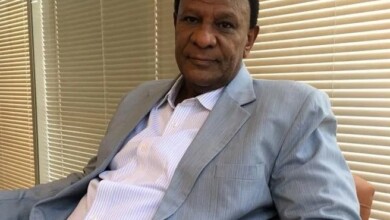Sudan’s De facto Authorities vs. the UAE: The hypocrisy of a genocidal institution
Nasreddin Abdelbari

On March 5th, 2025, the Sudanese de facto authorities filed a complaint against the United Arab Emirates (UAE) before the International Court of Justice (ICJ), accusing it of violating its obligations under the Convention on the Prevention and Punishment of the Crime of Genocide by providing continuous military and financial support to the Rapid Support Forces (RSF). Sudan —de facto represented by the Sudanese Armed Forces (SAF) or State Institutions illegally controlled by (SAF)— alleges that this support has contributed to a genocidal campaign against the Masalit ethnic group in West Darfur.
While this case represents a landmark precedent for resorting to international legal mechanisms, it is fraught with legal, political, and ethical contradictions. In addition to the insurmountable hurdles of jurisdiction, this case reveals a cynical attempt by (SAF) to polish its image by pretending to defend human rights. The same institution that oversaw seven decades of mass murder, ethnic cleansing, genocide, and State-sponsored terrorism is now seeking to rebrand itself as the guardian of International Law —a blatant and politically motivated shift.
A Case Ridden with Contradictions
The Sudanese de facto authorities’ recourse to the International Court of Justice carries symbolic significance, ostensibly indicating a desire to resolve disputes through international legal means rather than the use of force —regardless of military capabilities. However, the identity of the party bringing the case —an illegitimate military regime dominated by the (SAF)— makes it morally worthless. It is rather difficult to imagine a more blatant example of hypocrisy: An institution that has perpetrated genocide after genocide is now speaking on behalf of its victims.
It’s the same Sudanese Armed Forces that have perpetrated or contributed to mass atrocities in South Sudan, Darfur, the Nuba Mountains, and Blue Nile. This is the same institution and State that once dismissed international human rights mechanisms as biased and politicized, yet today it resorts to the same international legal system it has long despised and violated. The contradiction is glaring, and the political motivations are as clear as day.
Legal Basis: Unprecedented but Lacking
The lawsuit, filed by the Sudanese de facto authorities, accuses the (UAE) of providing material and moral support to a campaign of genocide allegedly carried out by the Rapid Support Forces against the Masalit people. The charges include supplying the Forces with weapons, ammunition, and 7drones, as well as financial transfers via intermediaries, despite credible reports documenting the alleged atrocities. According to the Sudanese de facto authorities’ claims, this support constitutes a breach of the UAE’s obligations under the Genocide Convention, particularly its obligation not to assist or be complicit in the commission of genocide.
To further bolster their case, the Sudanese de facto authorities presented a range of evidence, including reports by international human rights organizations documenting alleged atrocities committed by the Rapid Support Forces, satellite images showing scorched-earth tactics and the destruction of villages in Darfur, in addition to eyewitnesses testimonies describing mass killings and ethnically motivated violence.
The Sudanese de facto authorities also requested provisional measures, urging the court to require the (UAE) to cease all alleged support for the Rapid Support Forces, protect civilians —particularly the Masalit ethnic group— and preserve evidence related to the alleged crimes.
The Judicial Barrier: (Article IX) Reservation
The primary legal obstacle facing SAF’s case is the jurisdiction of the International Court of Justice —or rather, the lack thereof. (Article IX) of the Genocide Convention grants the court jurisdiction over disputes relating to the interpretation, application, or fulfilment of the Convention, however this article is subject to reservations.
Upon acceding to the Convention, the (UAE) made a reservation excluding the Court’s jurisdiction under (Article IX). This reservation is crucial. The Court has repeatedly recognized the validity of such reservations and deemed them binding, as in cases such as the Legality of the Use of Force (Yugoslavia v. Spain et al.), as well as the Democratic Republic of the Congo v. Rwanda.
The Sudanese de facto authorities acknowledge the existence of this reservation in their application, but fail to provide a convincing legal basis for overriding it. There is no special agreement between the parties, no provision in another treaty granting the Court jurisdiction, and no alternative legal basis has been invoked. The aforementioned absence -in itself- indicates that the case wasn’t designed to achieve a judicial victory, but rather to achieve political gains.





